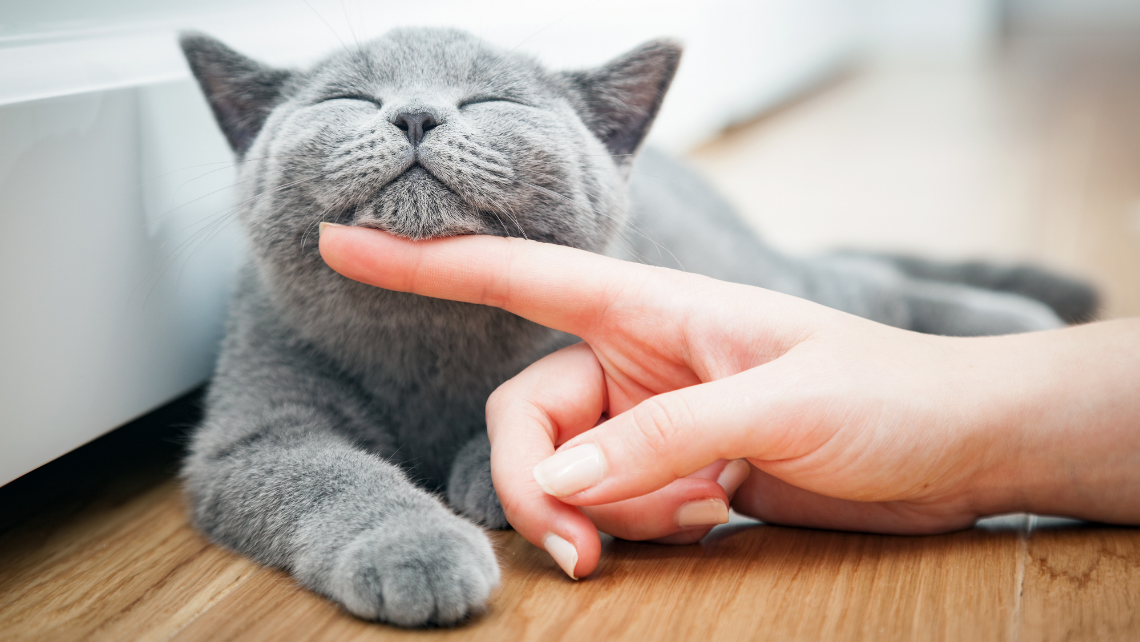For all those who are passionate about domestic cats, there is no sound as characteristic (or as comforting) as their purr.
What is purring? Although several theories have emerged, current knowledge believes that the purring sound is produced through intermittent vibrations of the laryngeal and diaphragmatic muscles during inhalation and exhalation, in a consistent pattern and frequency between 25 and 150 Hertz.
Similar to a soft motor, purring is often assumed to be an expression of satisfaction or well-being. However, studies seem to show that it is also used to communicate other emotions and needs, including those experienced in times of stress and discomfort.
But while all the reasons for its existence are not (yet) completely clear, like so many other characteristic behaviors of cats, we’ll leave you a few of the main purposes for purring that gather consensus amongst the experts Check how many you already knew of:
1. Maternal Communication
Purring is the first form of communication between the mother cat and her newborn kittens.
During and after birth, she uses it to soothe them. After the birth, it is through purring that she lets them know her position in the first days of life, while they are still blind and deaf, as they search for safety, warmth and food.
Once they learn to purr, they also begin to communicate with their mother through it, allowing her to locate them more easily, recognize their mood and confirm that they are well.
Purring tightens the bond between mother and kittens, a bond similar to the one between us and our cats. Cats use purring to attract our attention and/or ask for affection. By responding to the purring with attention, pets and treats, we stimulate the behavior.
2. Foraging
Defined as a “purr of request”, this call from a hungry feline has a higher frequency component, similar to the one of a crying baby, where the normal sound is changed to one of a more urgent nature.
This specific change instinctively leads us to want to help, and we therefore respond to our cat’s request whenever he starts purring desperately, with the offer of food.
3. Call for Help
Many cats purr when they are afraid and feel distressed or fearful, a behaviour you may have noticed on your regular visits to the vet.
Some cats purr when they are hurt or in distress, not only as a way to calm themselves, but also to convey the message that they are in danger and need help.
Thus, it is possible that purring may be a triggered mechanism to keep calm in adverse situations and aid in the management of pain and discomfort.
4. For Healing or Recovery
It is believed that purring may also help cats recover more quickly in disease or healing processes.
Indeed, researchers have shown that the low frequencies of their sound range correspond to those used in fracture treatment and other painful processes. And this could explain why cats are able to withstand high falls and have fewer complications after surgery compared to dogs.
Because of this extraordinary ability to produce vibrations inside their body, cats may have an evolutionary advantage that helps them with muscle growth, joint flexibility, improved bone density, relieve breathing, reduce pain and swelling and wound healing.
5. Pure Happiness
Lastly, adult cats can also purr simply because they are happy!
Purring happens on interaction with people or animals for whom cats have affection. We also observe purring when cats are in a relaxed, familiar environment where they feel good. Cats also purr when they have their favorite object nearby and they roll or rub against it.
Even though we may not know exactly what our cat is trying to tell us with its purring at any given moment, it is always best to pay attention.
It is crucial to try to understand the context, their body language, the tone they use and their responses to our reactions. Time spent together will contribute to a greater understanding of the natural behavior and characteristic signals of YOUR cat, helping to bond and strengthen the relationship between you.
If you want to keep up-to-date knowledge about your feline’s main characteristics and behavior, as well as ensure that all his medical acts and most important data are recorded, install Petable’s App. Available for iPhone and Android:

Leave a Comment